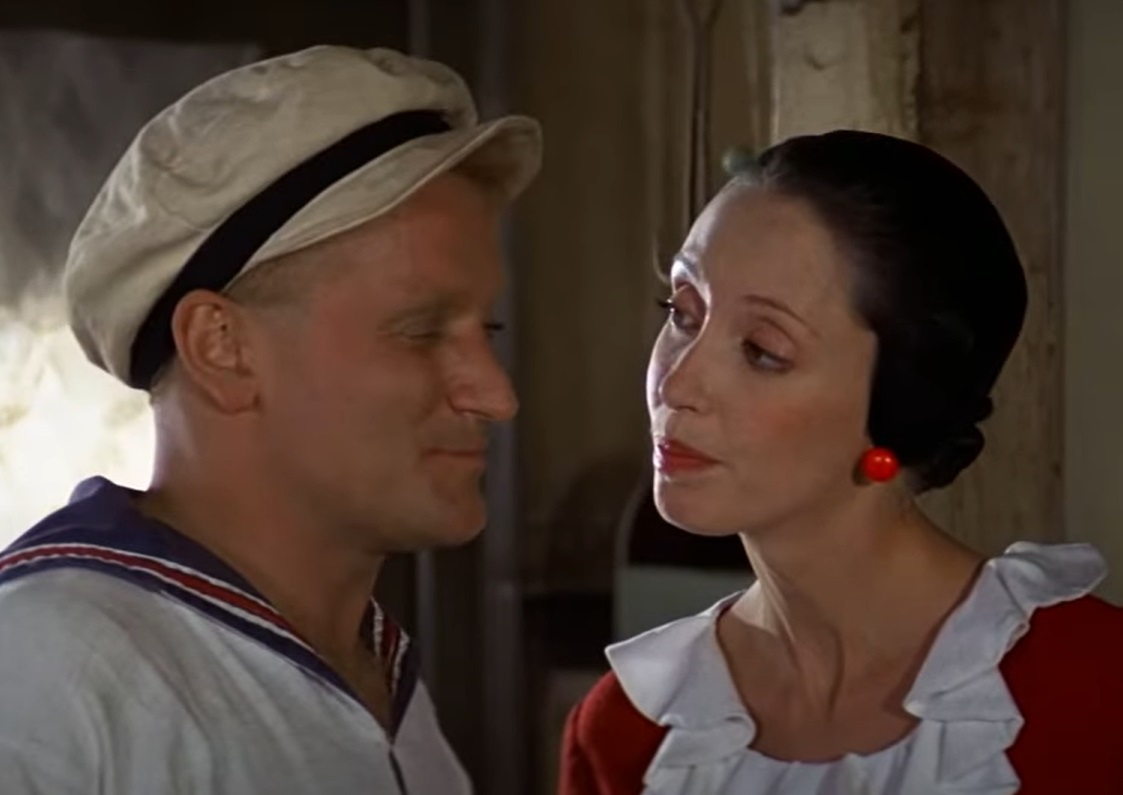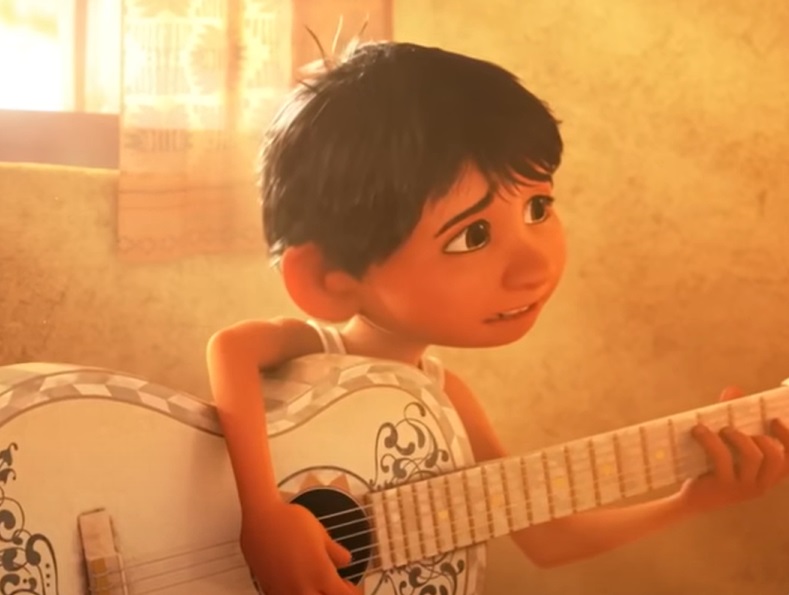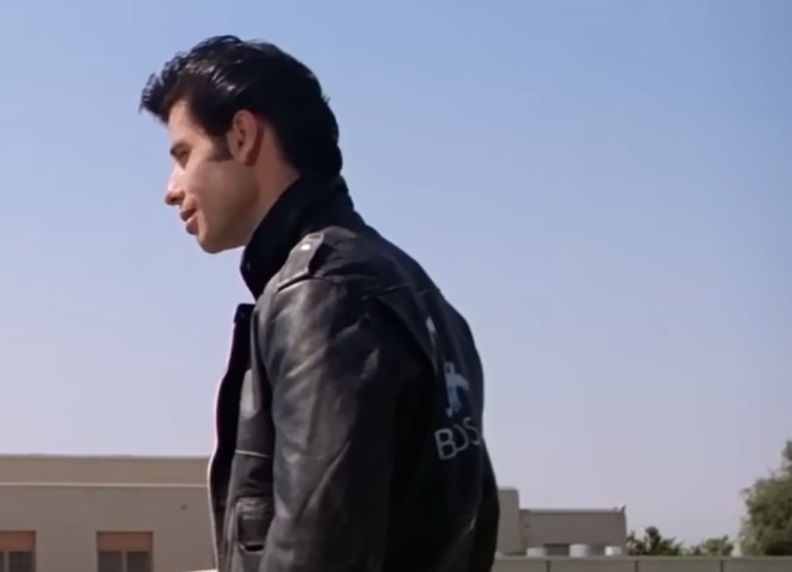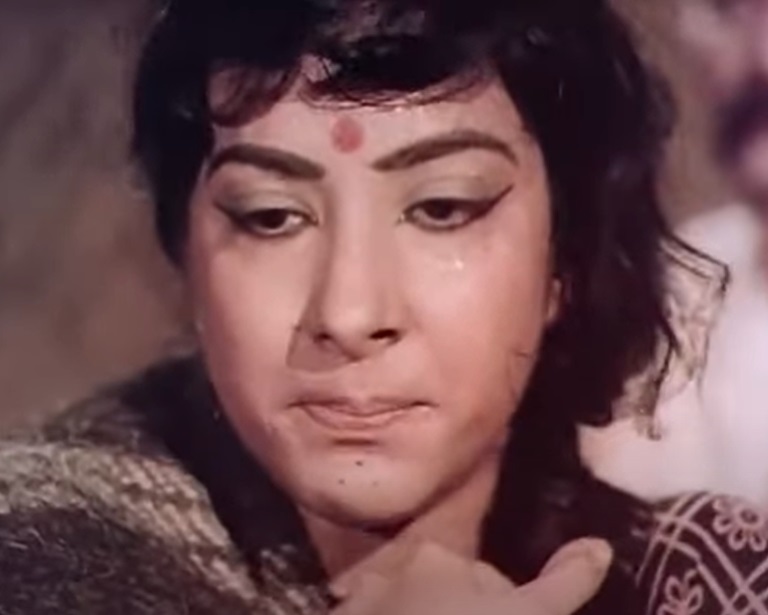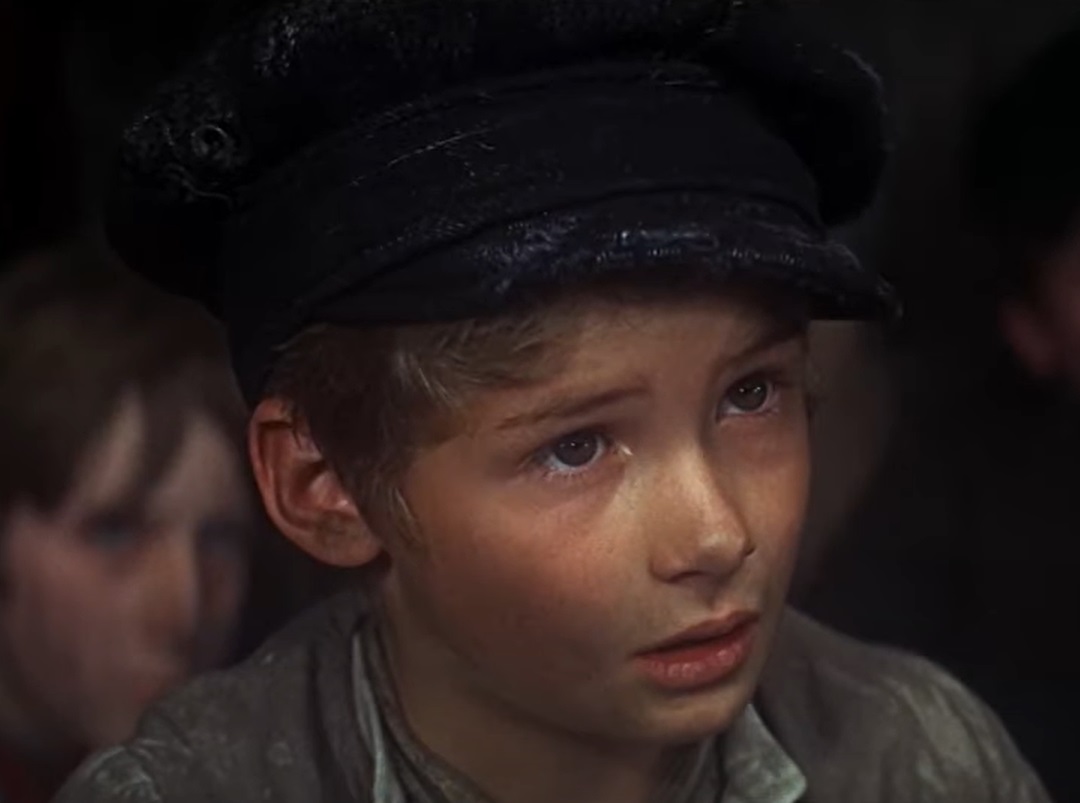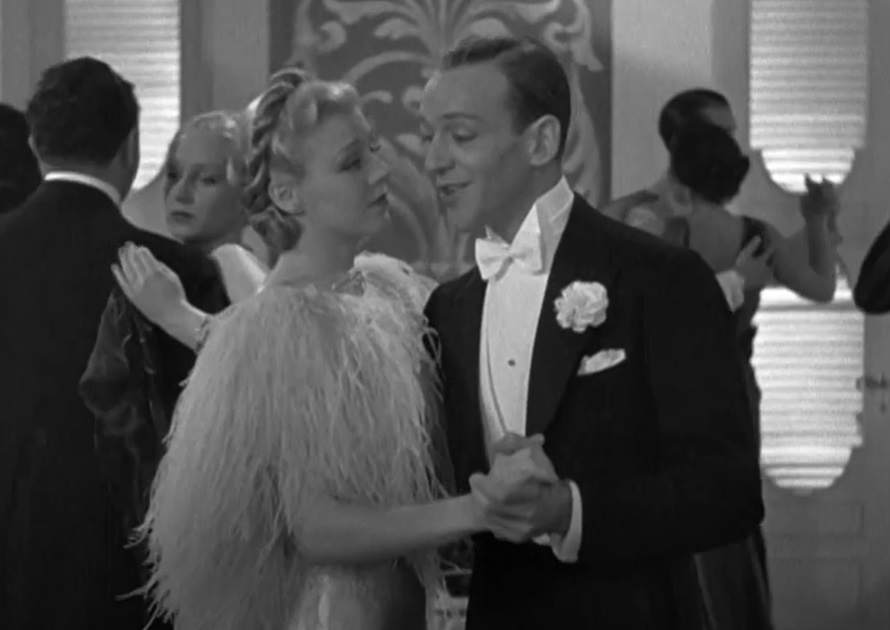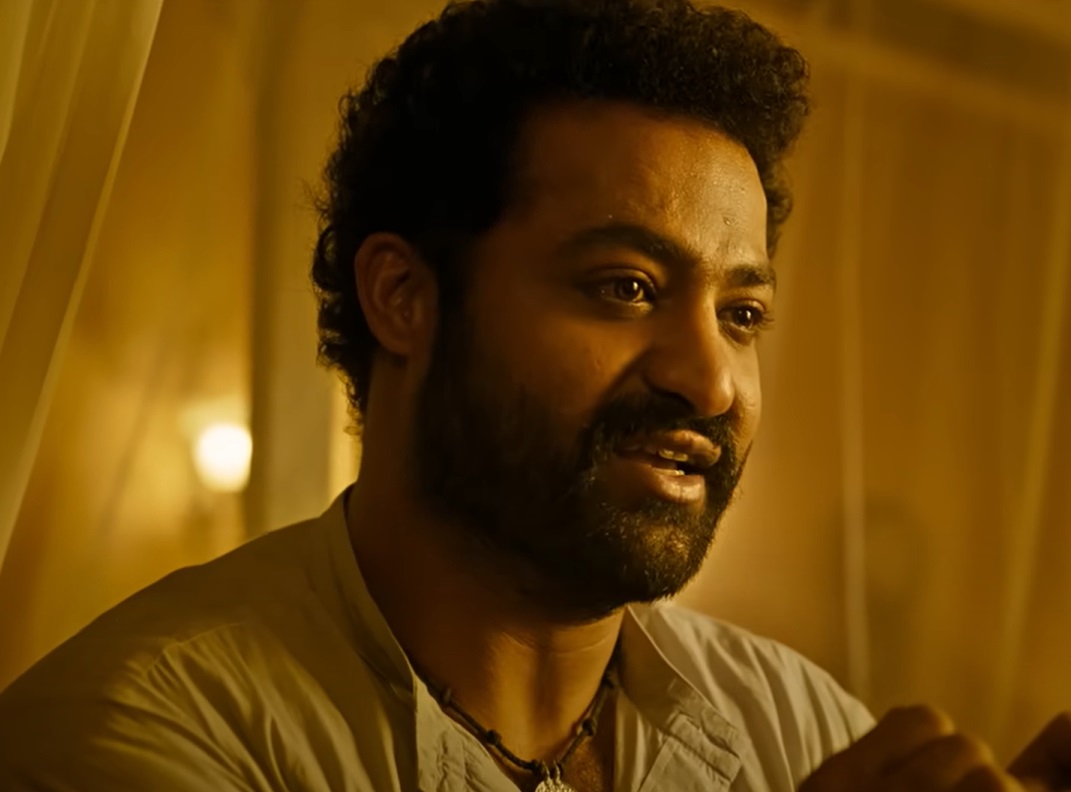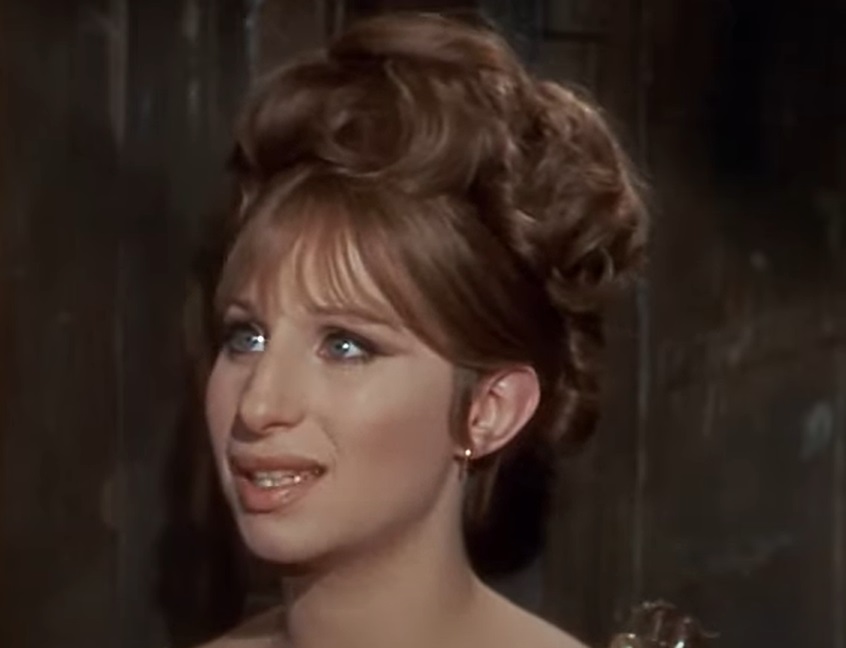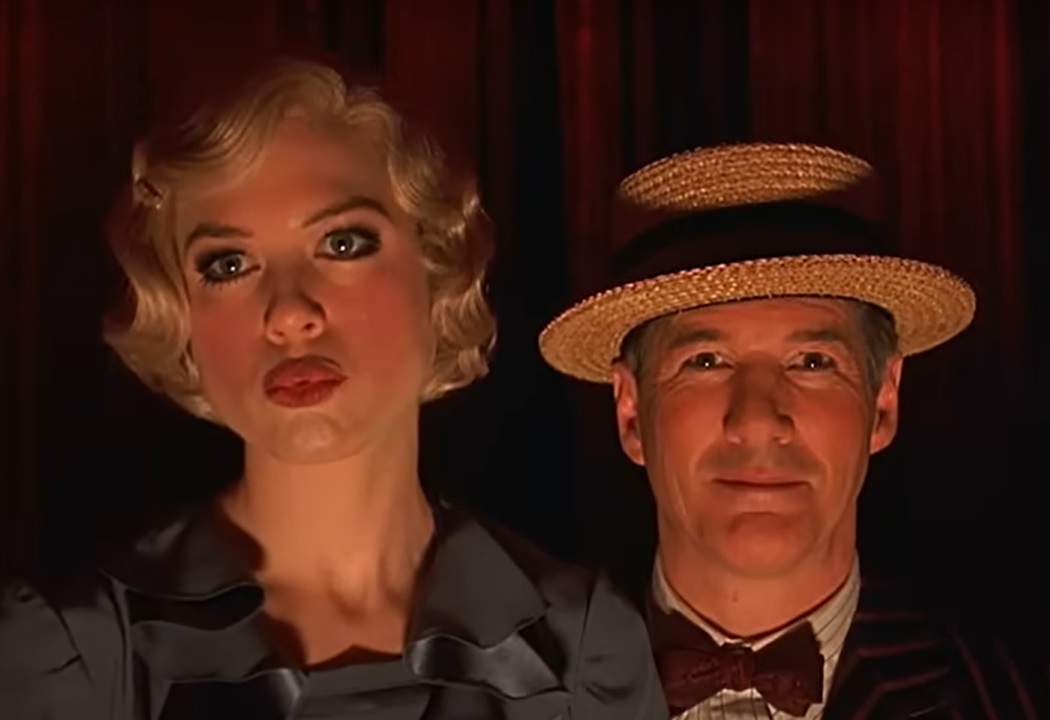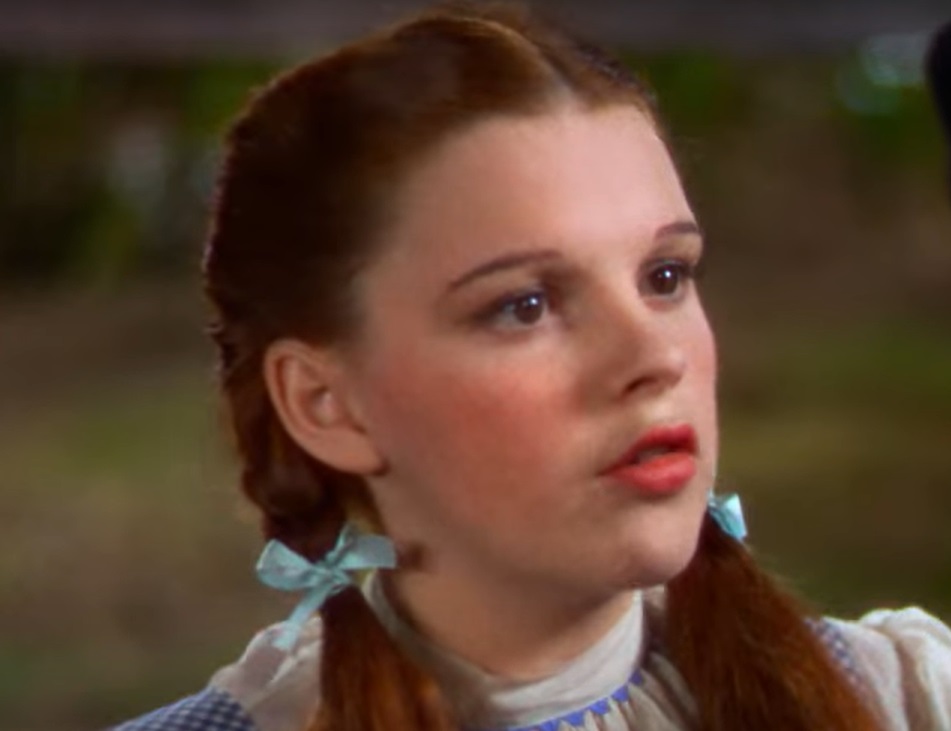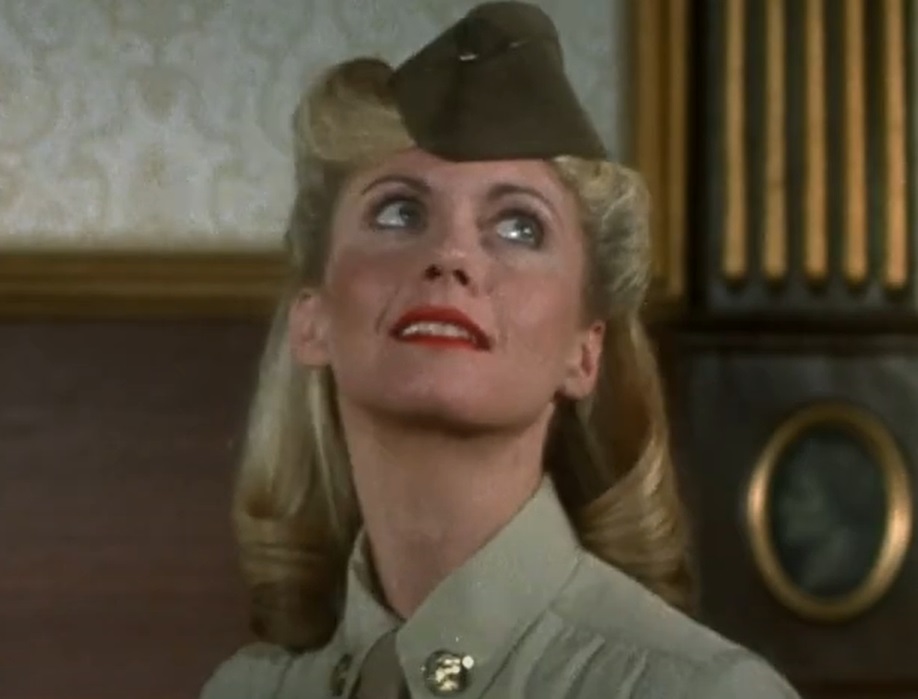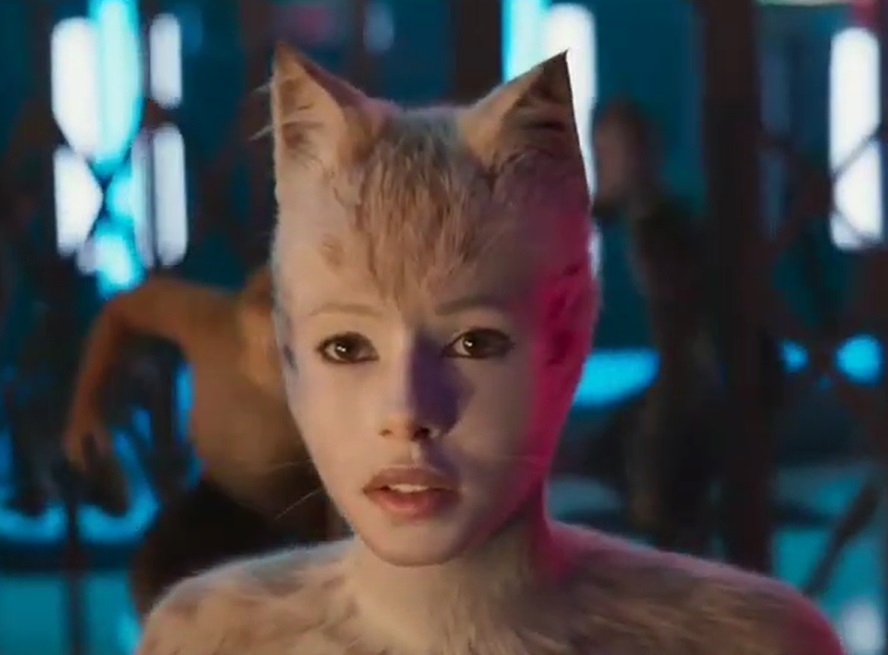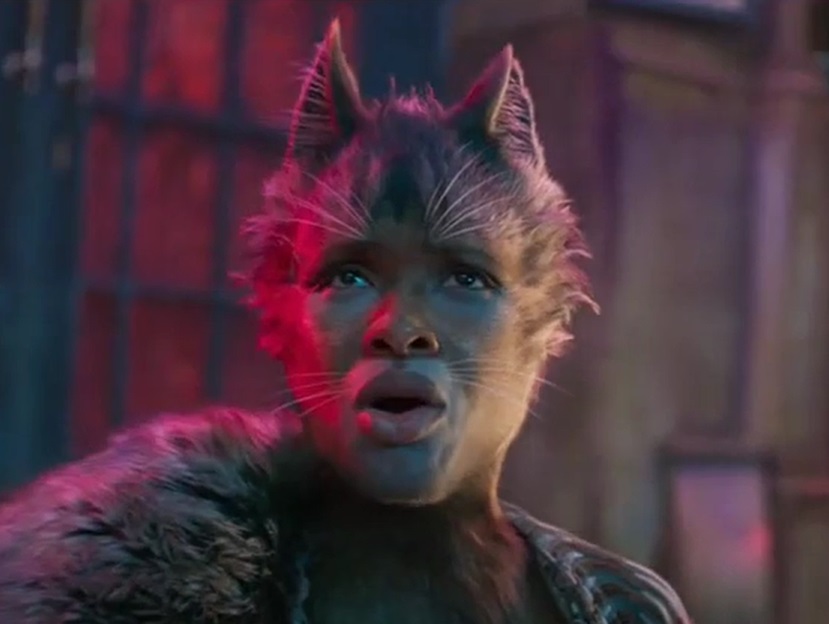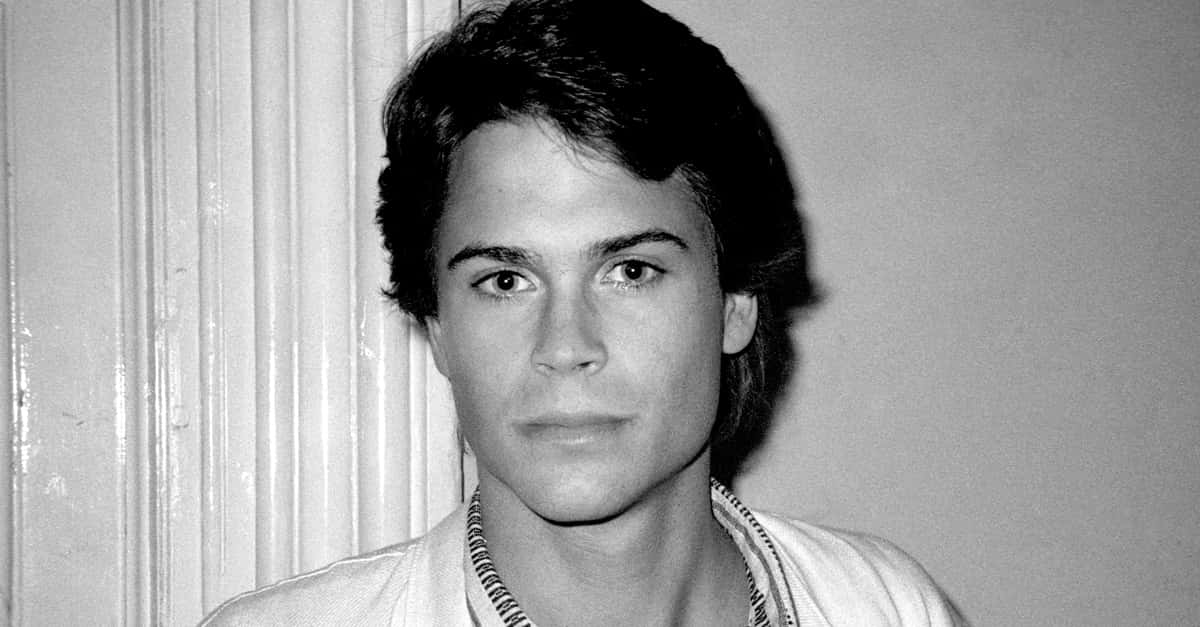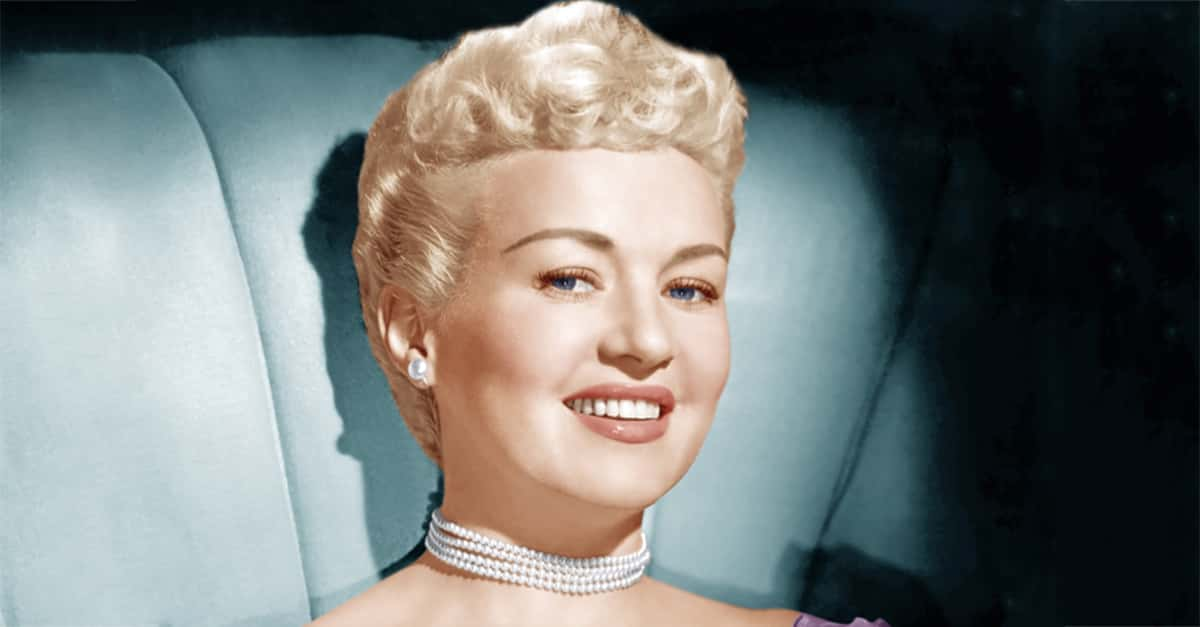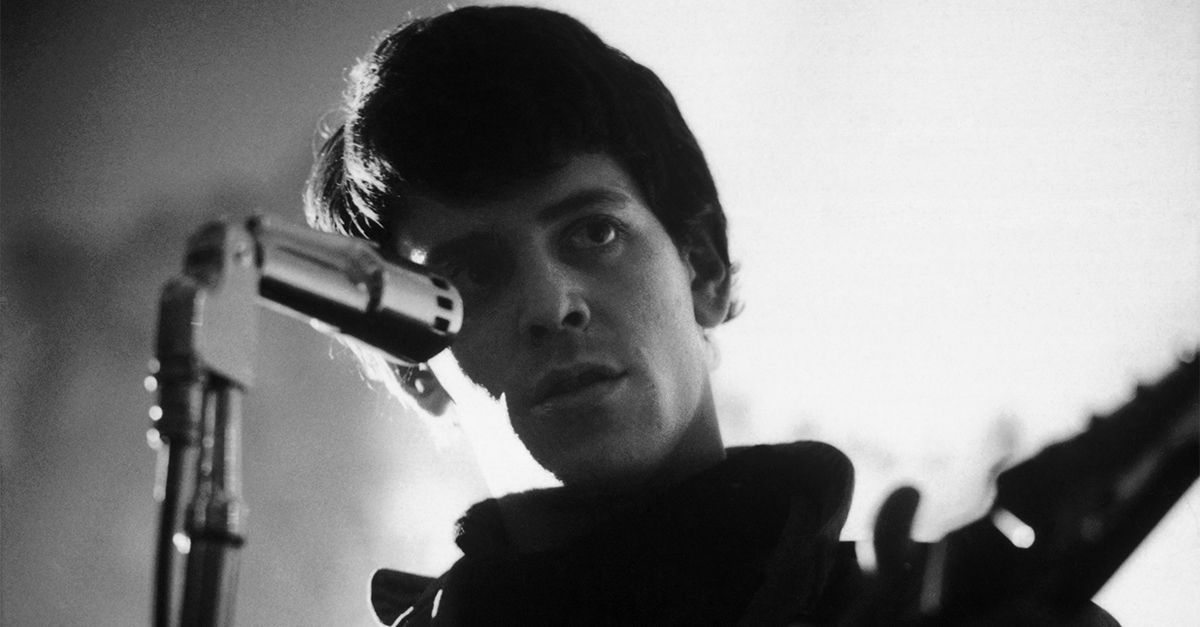A Tough Crowd
Good movie musicals are notoriously difficult to produce. Story, acting, script, singing, and dancing must work together with the music to create a cohesive artistic whole. Let’s look back at the movie musicals that met this high standard—and some of those that fell spectacularly short.
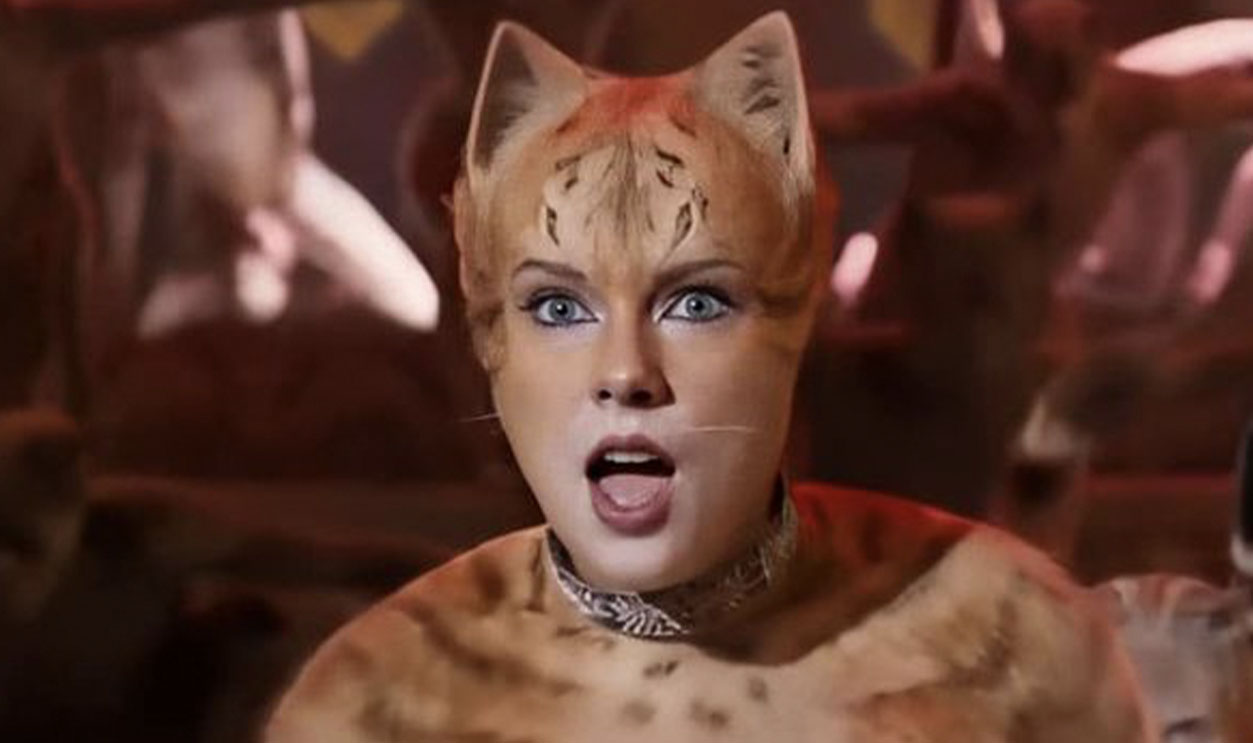
Popeye (1980)
To adapt a musical from a stage play is one thing. To adapt it from a famous cartoon was an altogether bolder undertaking. Starring Robin Williams and Shelley Duvall with a score by Harry Nilsson, Popeye did well at the box office but not initially with some critics. The Robert Altman-directed feature is today viewed much more favorably.
Phantom Of The Paradise (1974)
This rock-and-roll themed parody of The Phantom of the Opera featured a score by Paul Williams, who also played the title character. A box office flop, it was derided by many critics—one exception was the New Yorker’s Pauline Kael, who complimented director Brian De Palma for his “wantonly unpredictable” timing and “breakneck wit”. The film’s reputation has improved, and it is now a minor cult classic.
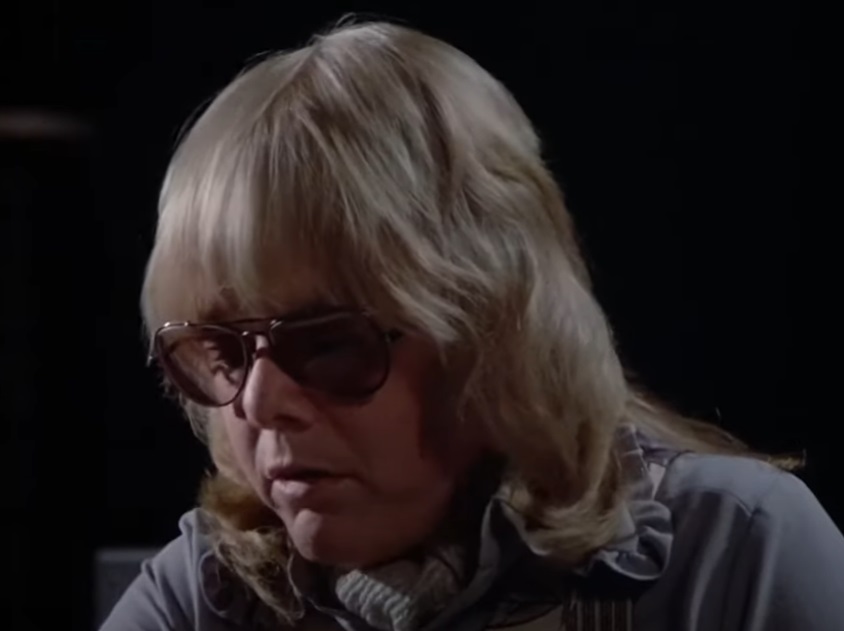 Twentieth Century, Phantom of the Paradise (1974)
Twentieth Century, Phantom of the Paradise (1974)
Gentlemen Prefer Blondes (1953)
This comedy about Marilyn Monroe and Jane Russell’s misadventures on a trip to Europe is viewed as a popular classic for Monroe’s performance of “Diamonds Are a Girl’s Best Friend”. Russell and Monroe both received good reviews, as did the film itself. Several composers created the score while Jack Cole choreographed all the music numbers for director Howard Hawks.
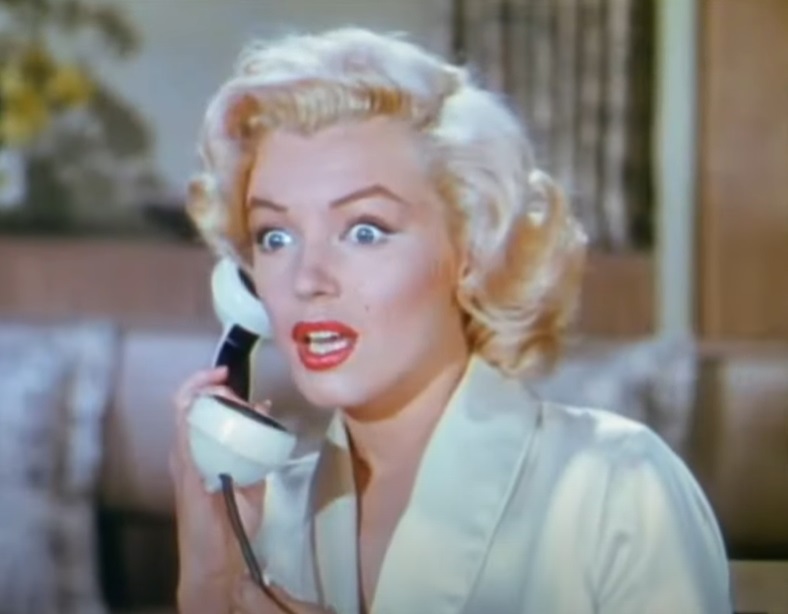 Twentieth Century, Gentlemen Prefer Blondes (1953)
Twentieth Century, Gentlemen Prefer Blondes (1953)
Little Shop Of Horrors (1986)
Frank Oz adapted Alan Menken and Howard Ashman’s stage musical that was itself an adaptation of an early-60s Roger Corman film. The movie musical featured Rick Moranis as a florist, a carnivorous plant with a big appetite, and a long list of 80s comedy greats. A commercial and critical success, it received Oscar nominations for Best Visual Effects and Best Original Song (“Mean Green Mother from Outer Space”).
 Warner Bros., Little Shop of Horrors (1986)
Warner Bros., Little Shop of Horrors (1986)
Willy Wonka And The Chocolate Factory (1971)
Roald Dahl’s famous tale was brought to life by director Mel Stuart with music by Leslie Bricusse and Anthony Newley. Gene Wilder overcame strong competition for the sought-after role of Willy Wonka. The film received rave reviews on its release, though it was only a modest success at the box office. The score was nominated for an Oscar and provided a hit for Sammy Davis Jr (“The Candy Man”).
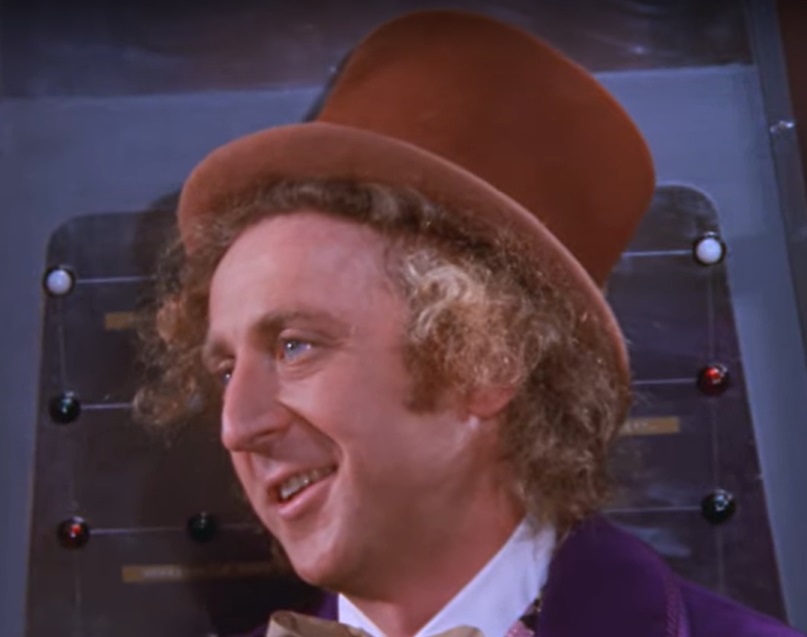 Paramount, Willy Wonka & the Chocolate Factory (1971)
Paramount, Willy Wonka & the Chocolate Factory (1971)
Coco (2017)
A boy goes on a quest to find his musical and family roots in this animated film by Pixar. A celebration of the splendor of Mexican music and culture, the film captured Academy Awards for Best Animated Feature and Best Original Song (“Remember Me” by Kristen Anderson- and Robert Lopez).
Grease (1978)
John Travolta and Olivia Newton-John provided the vocals and acting to make this throwback to the 50s a success at the box office and with critics. The film’s popularity was helped by an outstanding soundtrack that included hits such as “Grease” by Barry Gibb, and “You’re the One That I Want” by John Farrar.
The Red Shoes (1948)
A ballerina must choose between love and a future in ballet in this British adaptation of an 1845 Hans Christian Andersen fairy tale. Starring accomplished ballet dancer Moira Shearer, and co-directed by Michael Powell and Emeric Pressburger, The Red Shoes is today recognized as one of the best films of all time. Composer Brian Easdale won the Academy Award for Best Original Score.
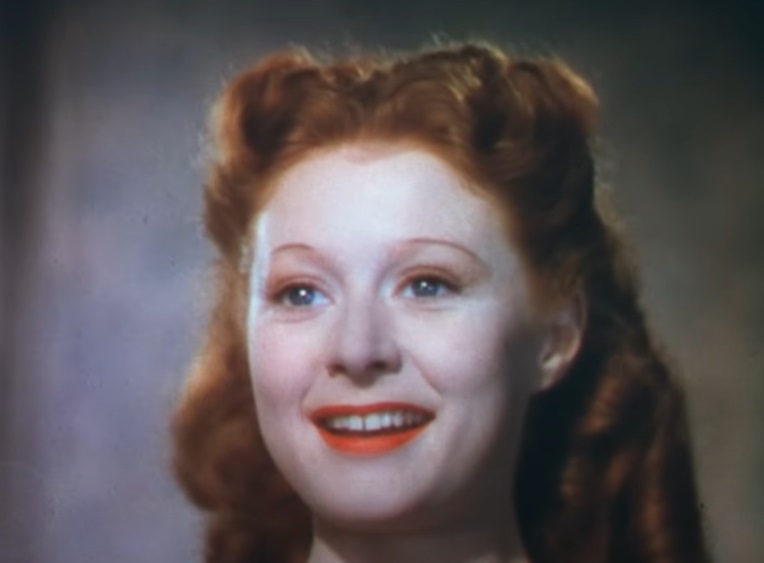 The Archers, The Red Shoes (1948)
The Archers, The Red Shoes (1948)
The Muppet Movie (1979)
The Muppets’ origin story is told in the form of a rollicking road trip through America in this entertaining musical by Jim Henson that featured numerous Hollywood guest stars. The success of the Muppet Show spilled over to the box office and charmed critics as well. Paul Williams and Kenneth Ascher received Oscar nominations for Best Score and Best Original Song (“Rainbow Connection”).
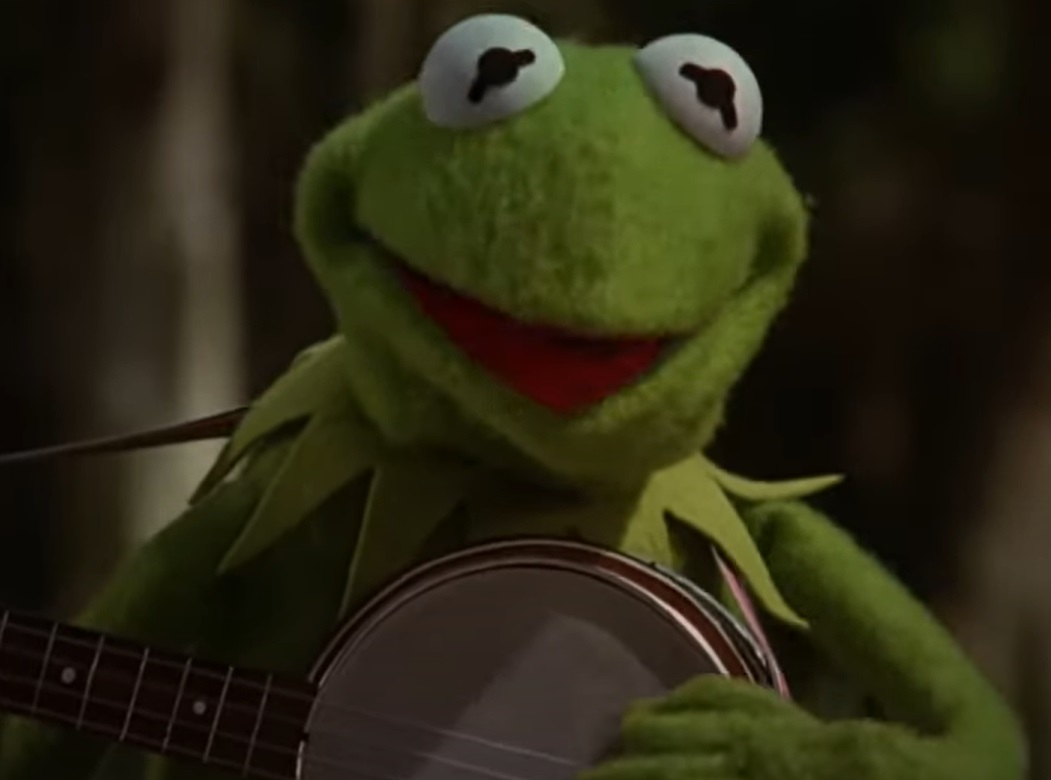 Henson Associates, The Muppet Movie (1979)
Henson Associates, The Muppet Movie (1979)
A Star Is Born (1954)
Though this film has since been remade a couple of times, the 50s version has yet to be outdone. Judy Garland’s singing and acting abilities shone as both she and co-star James Mason were nominated for Academy Awards. Featuring several numbers by Harold Arlen and Ira Gershwin, the three-hour exploration of the price of fame and the destructiveness of addiction was a musical and cinematic triumph.
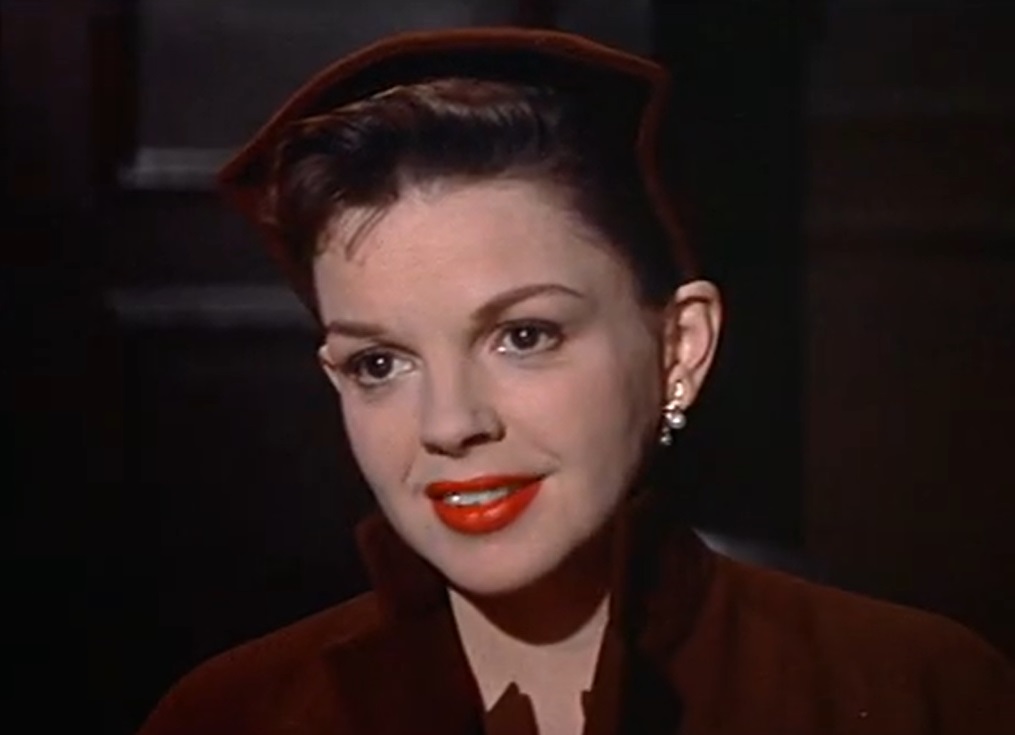 Warner Bros., A Star Is Born (1954)
Warner Bros., A Star Is Born (1954)
The Sound Of Music (1965)
Julie Andrews and Christopher Plummer starred in this enduring story of the Von Trapp family’s exodus out of Nazi-occupied Austria. Adapted from the 1959 Rodgers and Hammerstein stage musical, the film won five Academy Awards including Best Picture and Best Director (Robert Wise). The film’s music and themes captured the hearts of audiences, making it one of the highest-grossing musicals of all time.
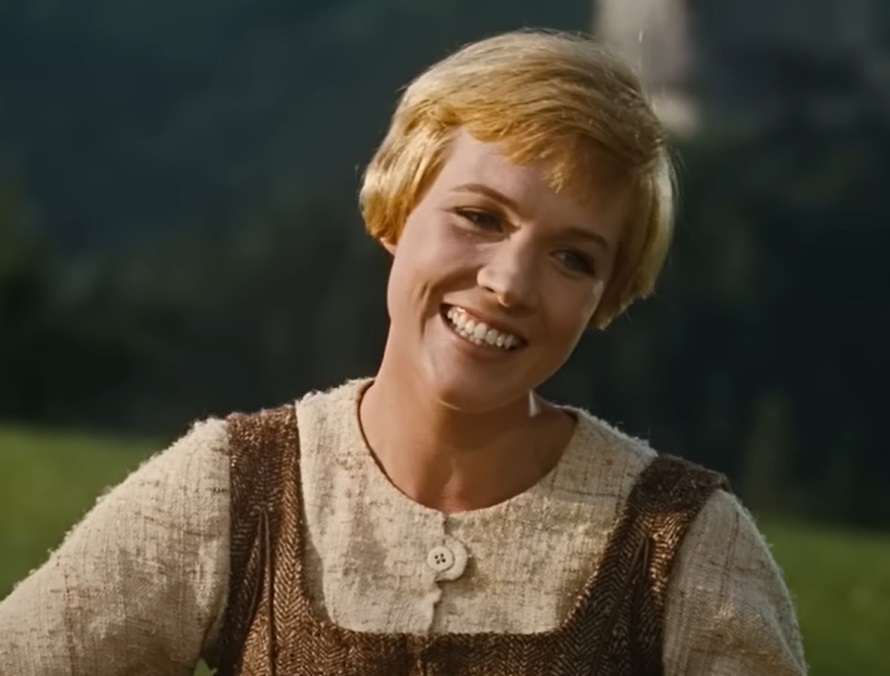 Twentieth Century, The Sound of Music (1965)
Twentieth Century, The Sound of Music (1965)
Beauty And The Beast (1991)
Beauty and the Beast combined music and storytelling in a way that defines a peak era of Disney. Their third attempt to adapt the old-time fairy tale was a major critical breakthrough—many view it as the best animated film of all time. It was the first animated film to receive an Oscar nomination for Best Picture, while Alan Menken won for Best Score, as did he and Howard Ashman for Best Original Song (“Beauty and the Beast”).
 Walt Disney, Beauty and the Beast (1991)
Walt Disney, Beauty and the Beast (1991)
Meet Me In St Louis (1944)
Judy Garland starred in this romantic comedy musical about a year in the life of an American family in the early 1900s. A major box office hit, critics praised Vincente Minelli’s directing for its subtle infusion of darker and more surreal elements. Several of its songs have become classics, including “The Trolley Song” by Ralph Blane and Hugh Martin. Seven-year-old Margaret O’Brien was praised for her supporting role.
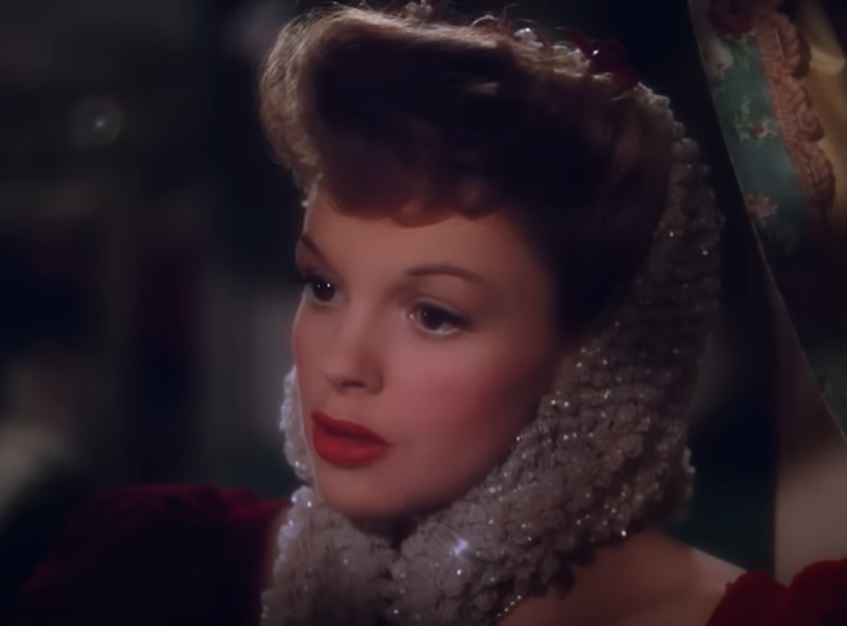 MGM, Meet Me in St. Louis (1944)
MGM, Meet Me in St. Louis (1944)
Fiddler On The Roof (1971)
The story of Tevye and his daughters is a moving depiction of Jewish village life in Tsarist Russia. Adapted from the highly successful 1964 stage production, the film was an enormous success with audiences and critics alike. John Williams adapted and conducted Jerry Bock’s original Broadway score, as the film captured Academy Awards for Best Sound, Cinematography, and Music.
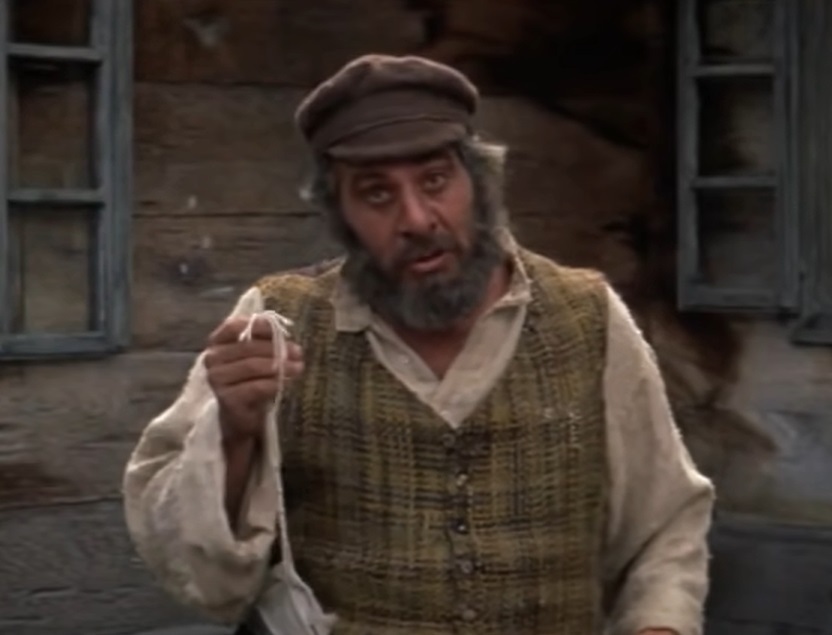 United Artists, Fiddler on the Roof (1971)
United Artists, Fiddler on the Roof (1971)
42nd Street (1933)
This dynamic musical based on the lives of Broadway chorus girls has endured as a classic of the pre-code era of Hollywood. Starring Warner Baxter, Ruby Keeler, and Bebe Daniels, it was the biggest film of 1933, reviving Warner Brothers’ flagging fortunes. Harry Warren and Al Dubin’s score was choreographed by Busby Berkely for director Lloyd Bacon. The film would be adapted for a Tony Award-winning stage production in 1980.
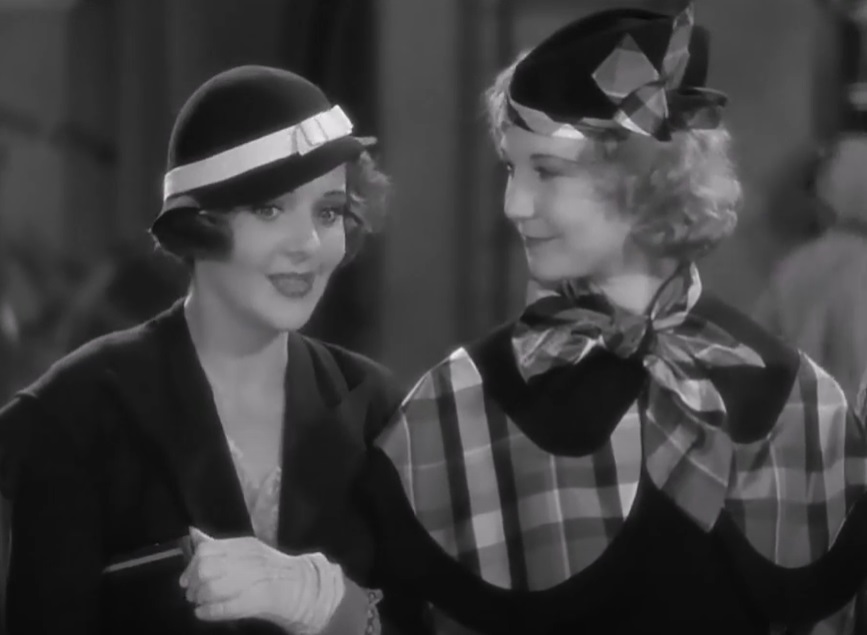 Warner Bros., 42nd Street (1933)
Warner Bros., 42nd Street (1933)
Mother India (1957)
This epic of the struggles of Indian village life was one of the first Indian productions to break through on an international scale. Directed by Mehboob Ali with music by Naushad, Mother India is revered by much of the Indian public as an expression of pride in the then-newly independent country. Though the film is not admired by all critics, it remains a milestone of Indian cinema.
Oliver! (1968)
The infectious music of composer Lionel Bart overlaid a somewhat dark tale in this adaptation of Dickens’ novel Oliver Twist. Starring Ron Moody as Fagin and a menacing Oliver Reed as Bill Sikes, the ambitious production won several Academy Awards, including Best Picture and Director (Carol Reed). Oliver! was the fourth musical to win Best Picture in eight years; Chicago (2002) is the only musical to win the honor since.
Mary Poppins (1964)
This iconic musical won five Academy Awards, including Best Score (the Sherman Brothers), Best Original Song (Chim Chim Cher-ee), and Best Actress (Julie Andrews). Based on PL Travers’ popular children’s book series, many still consider the film and its memorable soundtrack Disney’s best.
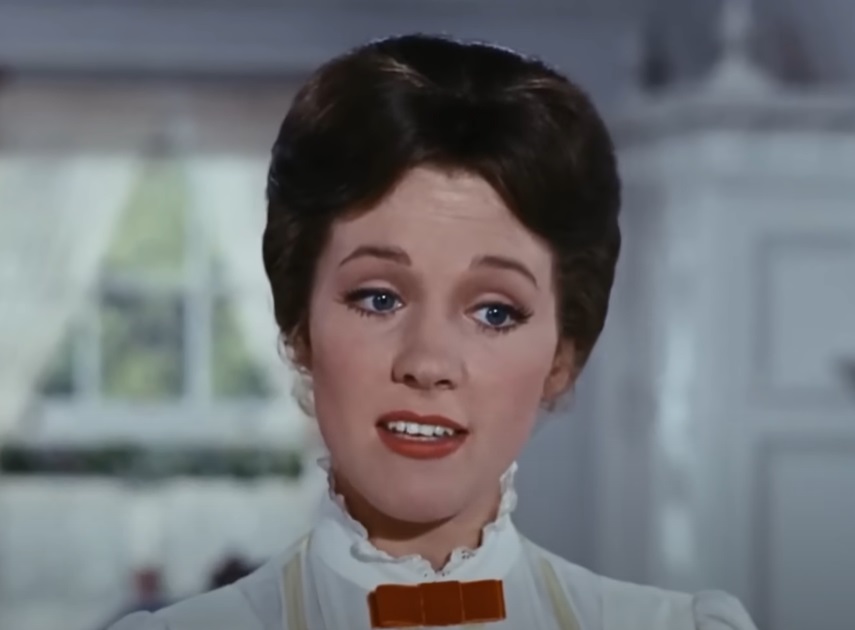 Walt Disney, Mary Poppins (1964)
Walt Disney, Mary Poppins (1964)
An American In Paris (1951)
Gene Kelly and Leslie Caron sang, danced, and starred in this story of life and love in postwar Paris. The film did not have an original soundtrack but was based on the songs of George and Ira Gershwin. Capped off by the 17-minute title ballet, the film was a massive success for director Vincente Minelli, winning six Academy Awards, including Best Picture.
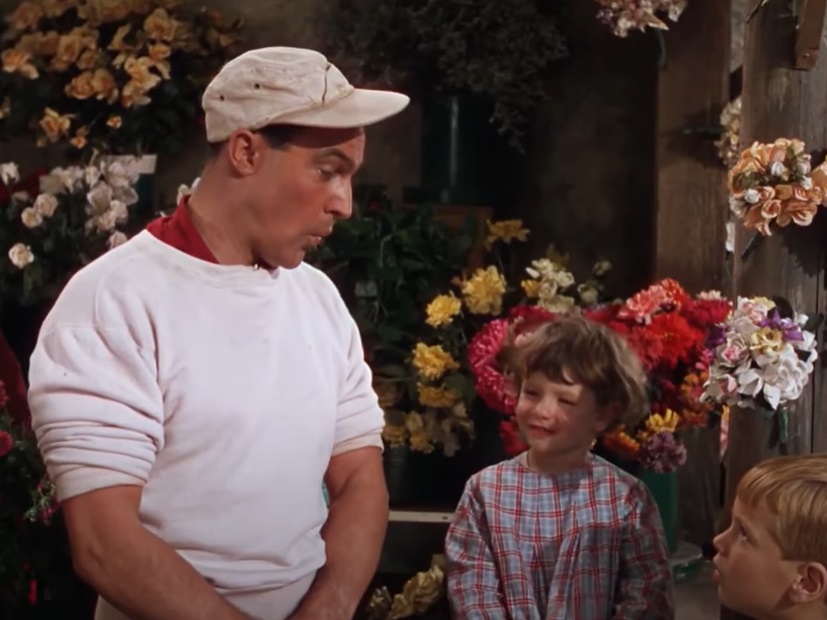 MGM, An American in Paris (1951)
MGM, An American in Paris (1951)
All That Jazz (1979)
Roy Scheider and Jessica Lange co-starred in this story of a Broadway director burning the candle at both ends. Based on director Bob Fosse’s own life and legendary work ethic, the musical won the top prize at the Cannes Film Festival and an Oscar for Best Original Score (Ralph Burns). The movie was praised by critics and notably Stanley Kubrick, who called All That Jazz the best film he had ever seen.
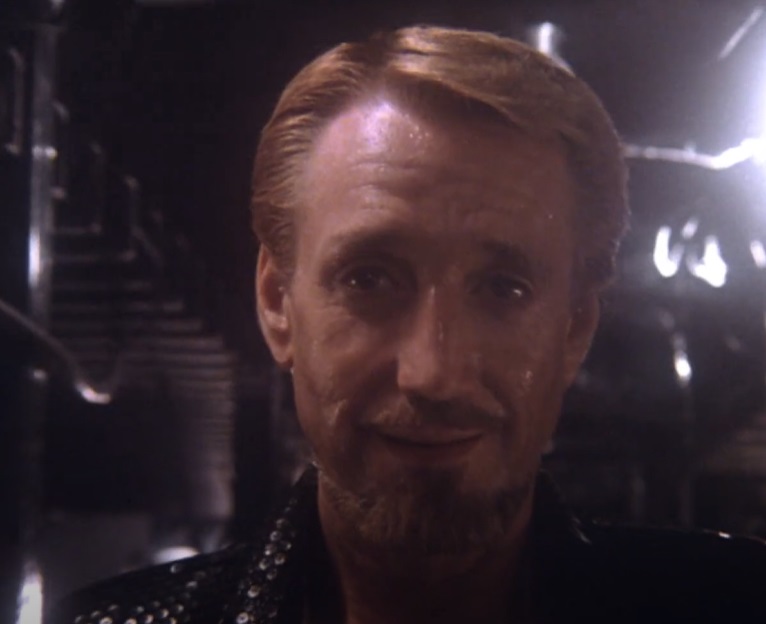 Twentieth Century, All That Jazz (1979)
Twentieth Century, All That Jazz (1979)
West Side Story (1961)
This musical co-starring Natalie Wood and Richard Beymer was a modernization of Shakespeare’s Romeo and Juliet. Adapted from Leonard Bernstein and Stephen Sondheim’s Broadway hit, the film was also a huge success. West Side Story won 10 Oscars, including Best Picture, Director (Robert Wise), Supporting Actress (Rita Moreno), and Supporting Actor (George Chakiris). Steven Spielberg’s 2021 remake improved aspects of the original, which has been criticized for its use of White actors in Puerto Rican roles.
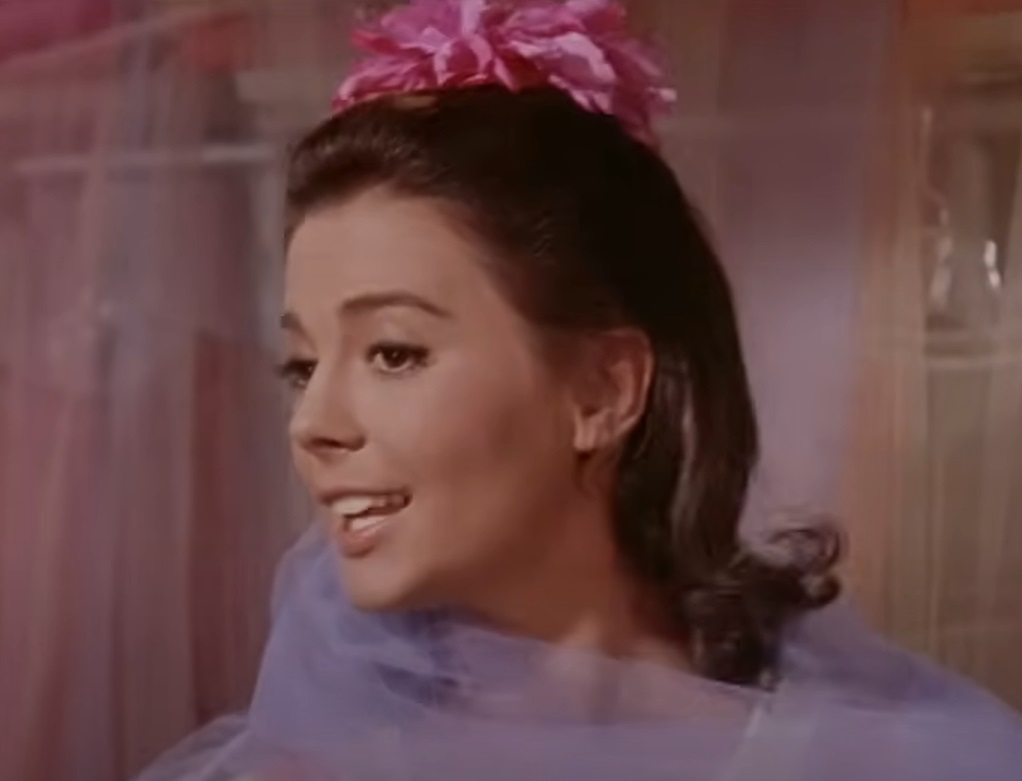 United Artists, West Side Story (1961)
United Artists, West Side Story (1961)
Top Hat (1935)
This was the most successful of the string of nine films by Ginger Rogers and Fred Astaire. The comedy featured the music of Irving Berlin, producing the hits “Cheek to Cheek”, and “Top Hat, White Tie and Tails”. Top Hat’s perfectly choreographed song and dance numbers provided moviegoers with a lighthearted escape from the Great Depression.
Stormy Weather (1943)
Long neglected by Hollywood, Black performers finally took center-stage in this fast-paced musical packed with energetic numbers. With an all-Black cast starring Lena Horne, Bill Robinson, and Cab Calloway, the film featured a string of jazz classics along with the dancing mastery of the Nicholas Brothers. Though some of the film’s portrayals are outdated, Stormy Weather represented a shift forward for Black folks in the film industry.
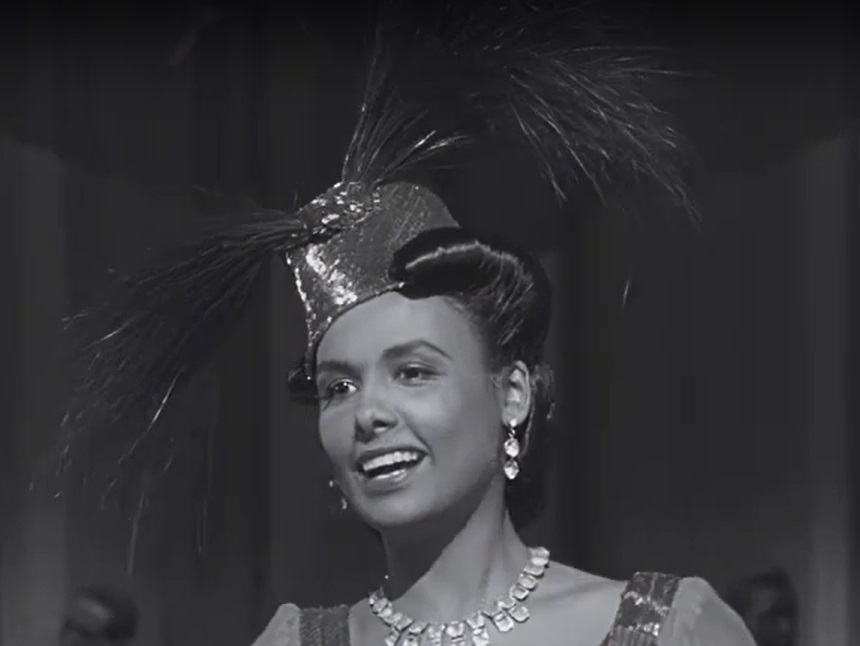 Twentieth Century, Stormy Weather (1943)
Twentieth Century, Stormy Weather (1943)
The Umbrellas Of Cherbourg (1964)
Jacques Demy wrote and directed this love story set to music by Michel Legrand. The film was produced opera-style, with the entire story told in song. Catherine Deneuve and Nino Castelnuovo were the acting stars with voices of professional singers dubbed over. Part of a series of films by Demy, Umbrellas won three awards at Cannes including the Palme d’Or (top film).
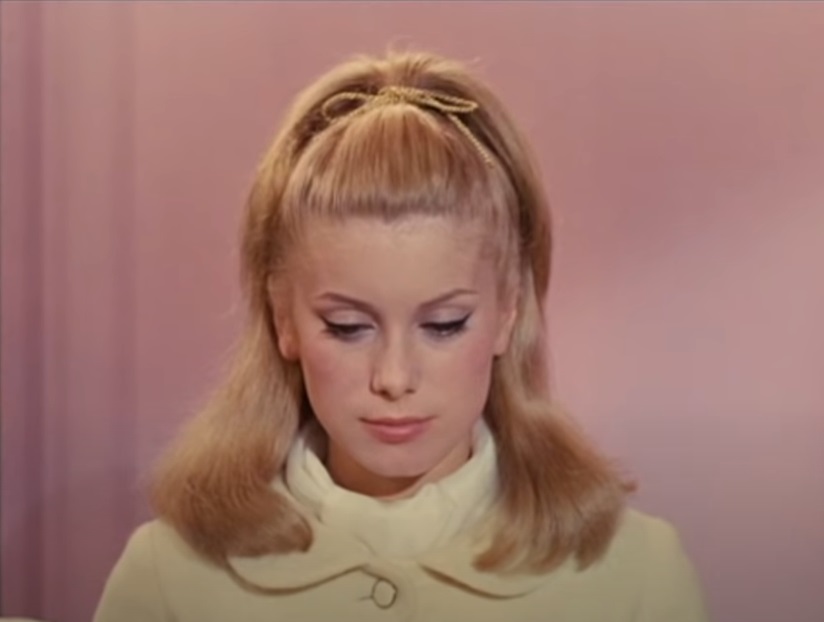 Twentieth Century, The Umbrellas of Cherbourg (1964)
Twentieth Century, The Umbrellas of Cherbourg (1964)
RRR (2022)
This epic Indian musical filmed in the Telugu language tells the tale of armed struggle by revolutionaries against British rule. Directed by SS Rajamouli with music by MM Keeravani, the three-hour epic earned worldwide praise. The pulsing “Naatu Naatu” won the Academy Award and Golden Globe for Best Original Song, a major achievement in Indian cinema.
Funny Girl (1968)
Barbra Streisand’s film debut saw her bring her Broadway portrayal of Fanny Brice to the big screen. Co-starring Omar Sharif with music composed by Jule Styne and Bob Merrill, the film was the highest grossing of 1968. Funny Girl was nominated for eight Oscars including Best Actress, which Streisand won. Song highlights included “People”, and “Don’t Rain on My Parade”.
Chicago (2002)
Chicago was the most successful movie musical in many years, renewing public interest in the genre. The film was adapted from Bob Fosse’s 70s Broadway production with music by John Kander and lyrics by Fred Ebb. The darkly humorous Jazz Age blockbuster won six Oscars, including Best Picture, Best Supporting Actress (Catherine Zeta-Jones), and Best Original Song (“I Move On”).
My Fair Lady (1964)
Audrey Hepburn and Rex Harrison were the co-stars in this story of a professor who tries to teach the working-class Eliza Doolittle to speak aristocratic English. With music by Frederick Loewe and lyrics by Alan Jay Lerner, the film adapted Lerner’s successful 1950s Broadway production. One of the greatest musicals ever, the film took eight Academy Awards, including Best Picture, Best Director (George Cukor), and Best Actor (Harrison).
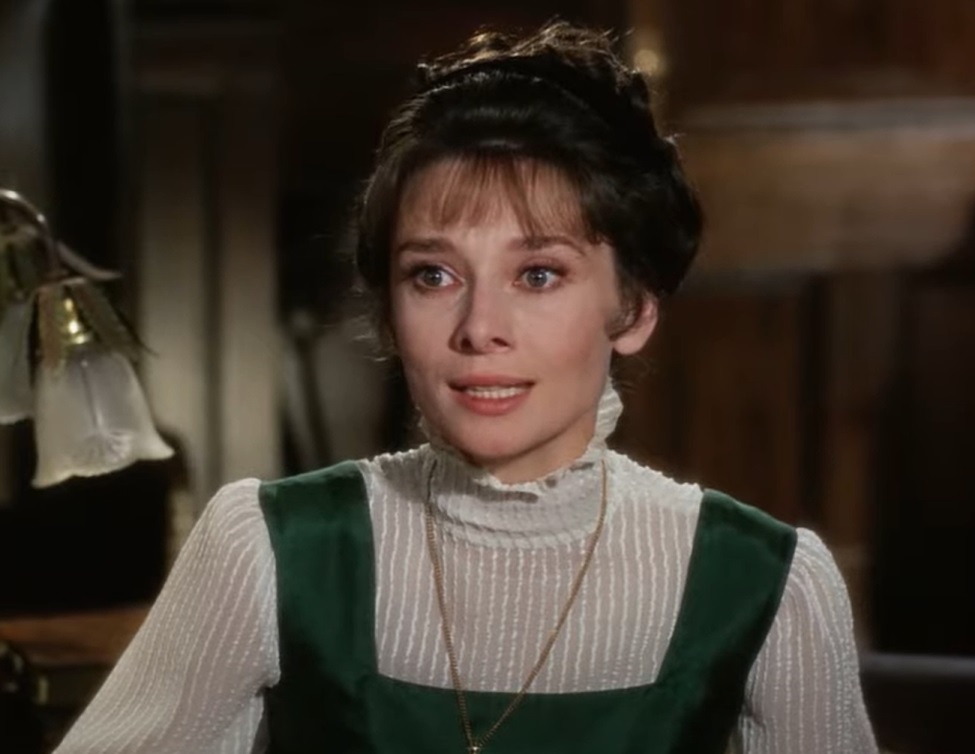 Warner Bros., My Fair Lady (1964)
Warner Bros., My Fair Lady (1964)
The Wizard Of Oz (1939)
One of the most ambitious musicals ever made, this fantasy classic continues to fascinate viewers—and listeners— almost nine decades after its release. Harold Arlen and Yip Harburg provided the songs, which were adapted with an additional score by Herbert Stothart. A Hollywood cultural icon, the film was awarded Oscars for Best Score and Best Original Song (“Over the Rainbow”).
Cabaret (1972)
The relationship of a writer with Berlin nightclub performer Sally Bowles (Liza Minelli) in the dying days of Weimar Germany forms the main storyline of Cabaret. Directed and choreographed by Bob Fosse with music by John Kander and Fred Ebb, Cabaret was acclaimed for its originality and exploration of difficult subject matter. It won eight Academy Awards including Best Director (Fosse) and Best Actress (Minelli).
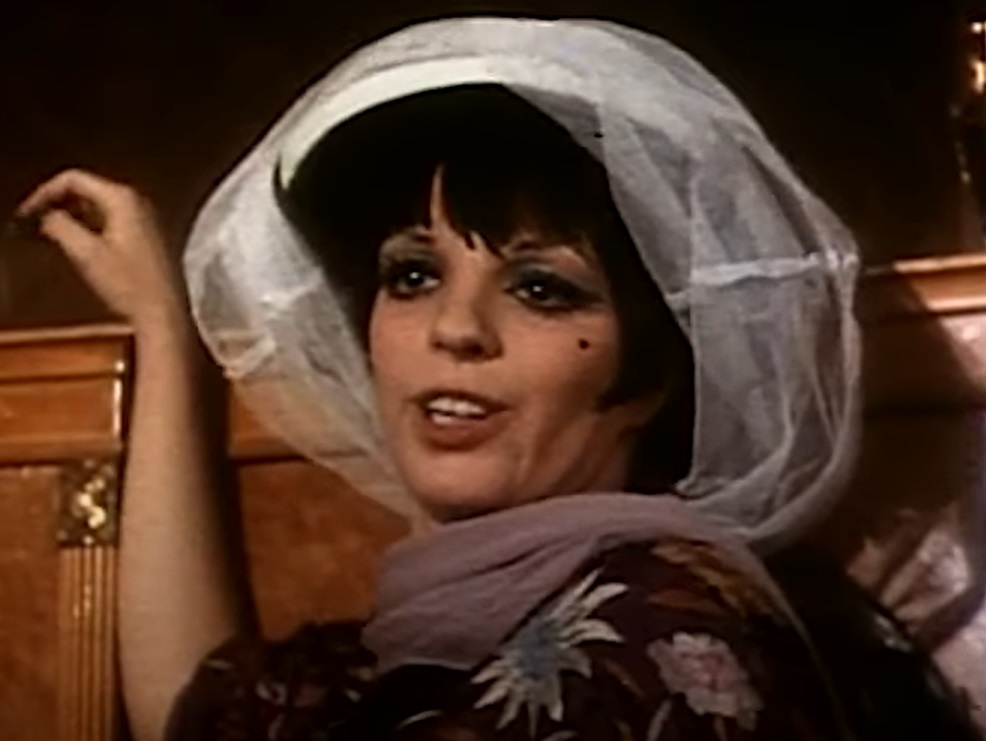 Allied Artists, Cabaret (1972)
Allied Artists, Cabaret (1972)
Singin’ In The Rain (1952)
The end of the silent film era was the basis of this rousing musical starring Gene Kelly and directed by Stanley Donen. The music drew from the 1930s songs of Nacio Herb Brown. Not an instant critical success, the film experienced a critical reappraisal in the 60s, aided by repeat showings in theaters and on prime-time TV. Many now regard Singin’ in the Rain as the greatest movie musical of all time for its dance sequences and exuberant spirit.
However, few people know that there's a shocking secret in the opening sequence of the movie. You see, Kelly was actually horrifically ill during his iconic performance and showed up to set that day with a temperature of 103F. Being the director, choreographer, and star of the movie, he pushed through the pain to give us that spectacular dance number.
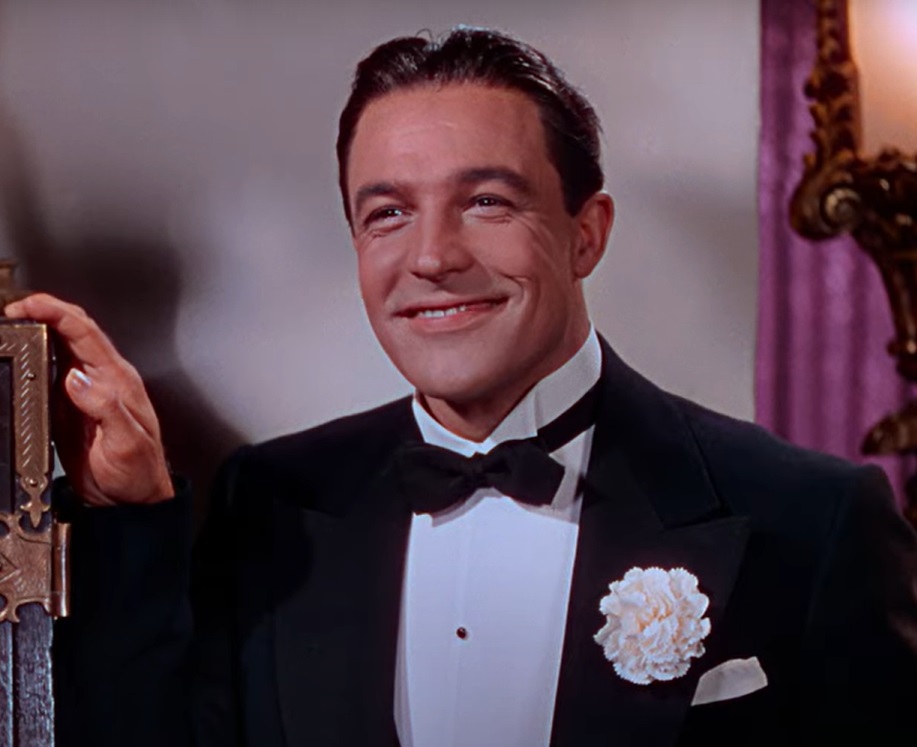 MGM, Singin' in the Rain (1952)
MGM, Singin' in the Rain (1952)
Saving The Worst For Last
The preceding list obviously left out several deserving films—maybe it even included some that you don’t think belong there. Before the arguments start, let’s exhale for a moment and consider some of the worst musicals ever made. Who made these lemons, and why did they fail so spectacularly?
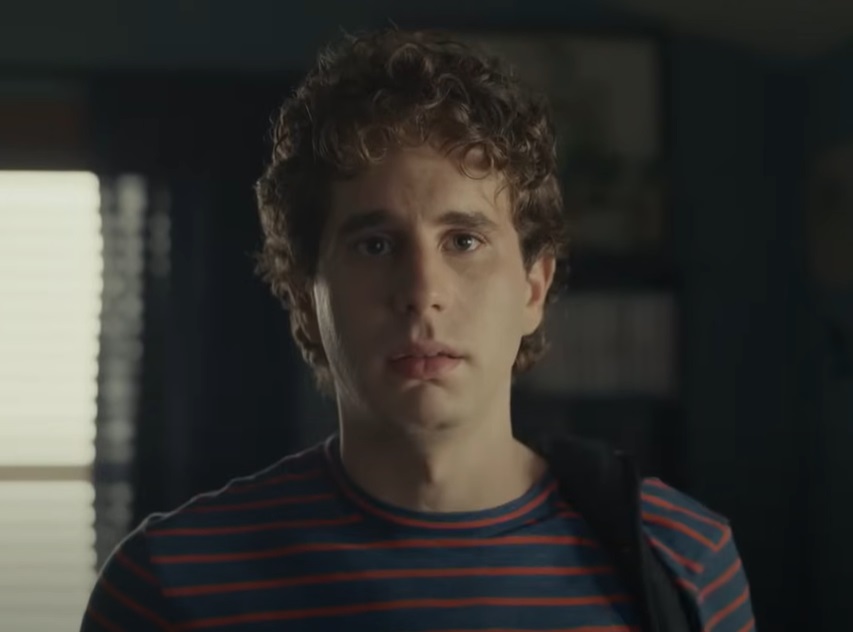 Universal, Dear Evan Hansen (2021)
Universal, Dear Evan Hansen (2021)
Eight Crazy Nights (2002)
Adam Sandler was the main voice actor in this animated Christmas musical about a town troublemaker trying to clean up his act. The lack of humor in the film—and the crudeness of what humor it did have—didn’t make for a very good Holiday family viewing experience. Eight Crazy Nights also took a drubbing for its use of product placements, which even appeared in the song lyrics.
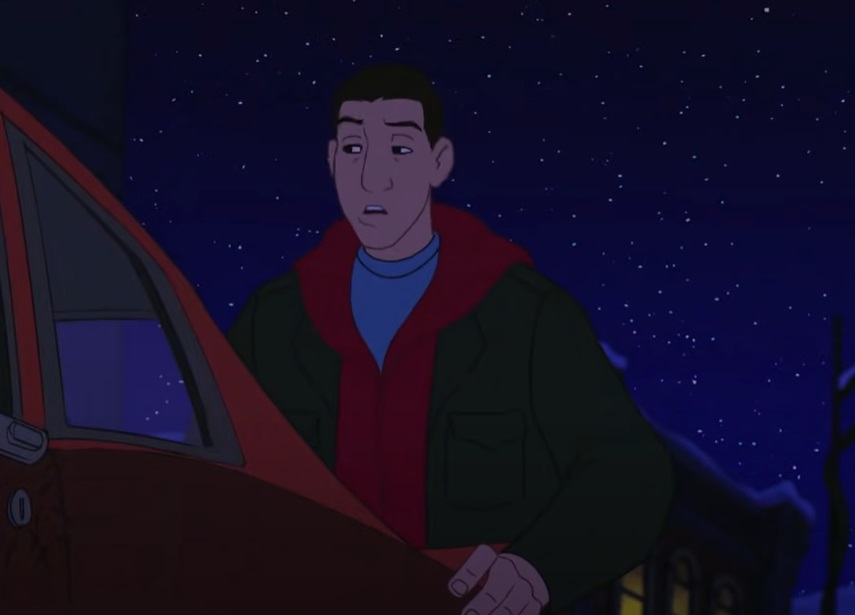 Columbia, Eight Crazy Nights (2002)
Columbia, Eight Crazy Nights (2002)
Xanadu (1980)
Poor cinematography, confused choreography, and an absurd plot combined to sink this musical, which starred Olivia Newton-John and Gene Kelly in his last role. Now seen as a window into the popular culture of the early 80s, the film was so bad it inspired the launch of the infamous annual Razzie Awards for the worst performances in cinema. Gene Kelly accurately said of Xanadu: “The concept was marvelous, but it just didn’t come off”.
The Broadway Melody (1929)
The 1929 Academy Award winner for Best Picture may seem like an odd choice for a list of worst musicals, but saying this film hasn’t aged well is an understatement. Made at the beginning of the sound era, The Broadway Melody’s banal story, generic song-and-dance numbers, and general all-around silliness make it evident that the directors of the time had yet to master the production fundamentals of movie musicals.
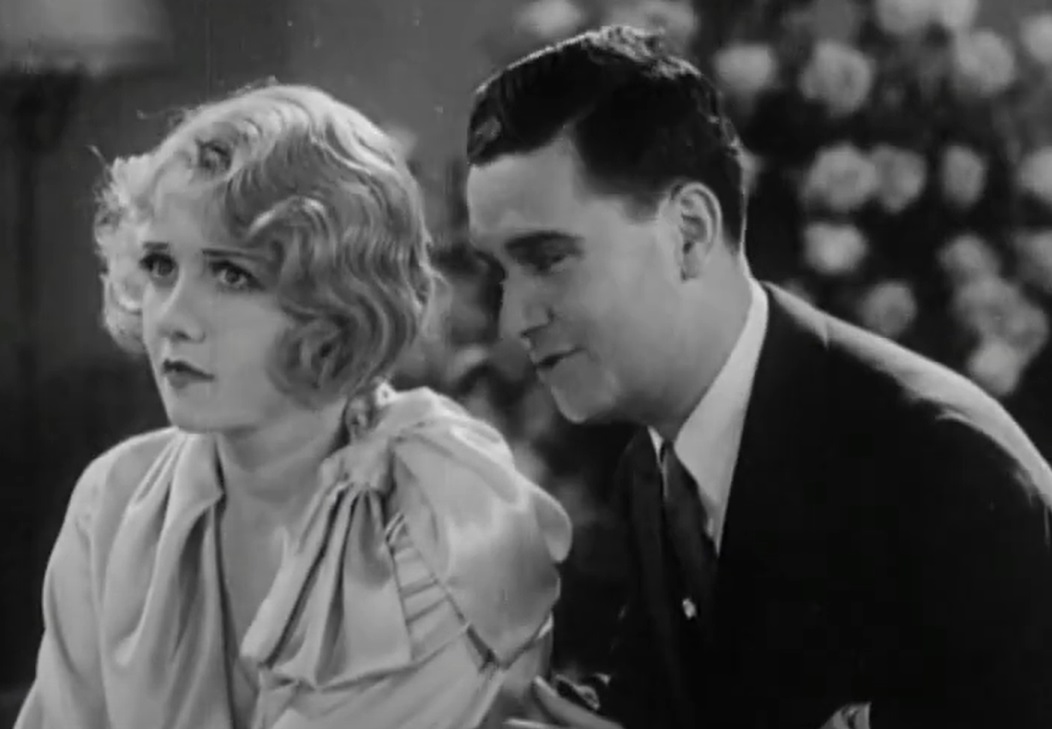 MGM, The Broadway Melody (1929)
MGM, The Broadway Melody (1929)
Dear Evan Hansen (2021)
The casting of 27-year-old Ben Platt as a high school student and the inability to harness the visual elements of its successful Broadway source material sealed the fate of Dear Evan Hansen. Critics also took aim at the film’s poor handling of mental health issues including suicide. The musical was nominated for four Razzie Awards including Worst Director (Stephen Chbosky) and Worst Actor (Platt).
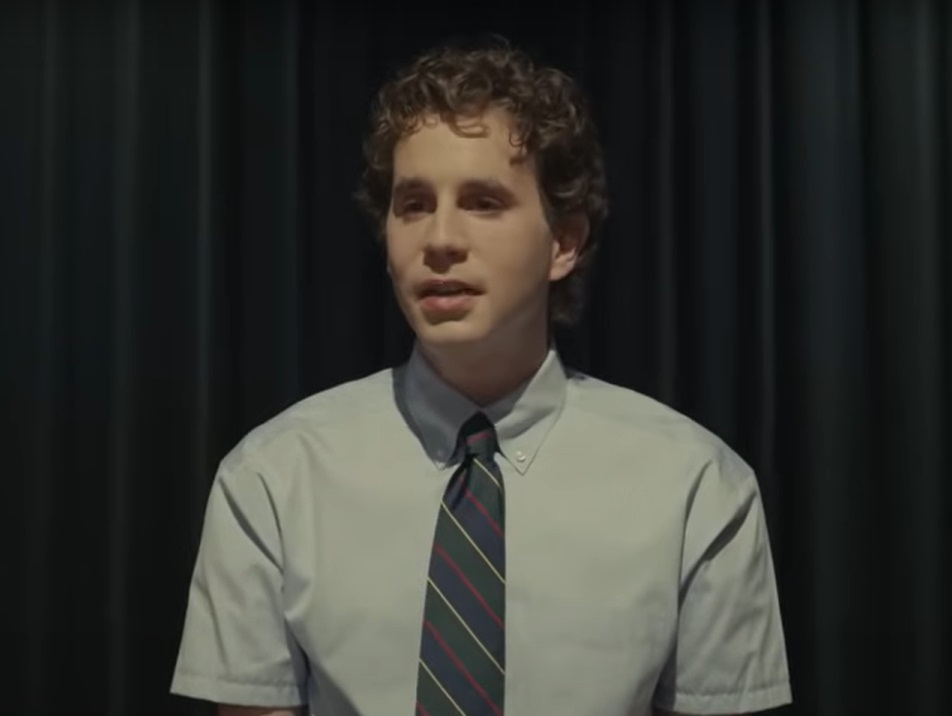 Universal, Dear Evan Hansen (2021)
Universal, Dear Evan Hansen (2021)
Cats (2019)
This unsuccessful adaptation of Andrew Lloyd Weber’s stage musical was lampooned in the press for the myriad poor choices made by the filmmakers. The film’s use of CGI effects gave the humanoid cats a look that many viewers found bizarre. With nightmarish cinematography and a plot that made little sense even in a fantasy context, Cats has become infamous as one of the worst movie musicals ever made.
Glitter (2001)
Not bad enough to be good, just plain bad—that was the critical consensus on Glitter, which starred Mariah Carey as a singer struggling to secure a big record deal. With a hackneyed plot that wasted Carey’s formidable singing abilities, Glitter was also ripped by critics for its story, screenplay, directing, and acting.
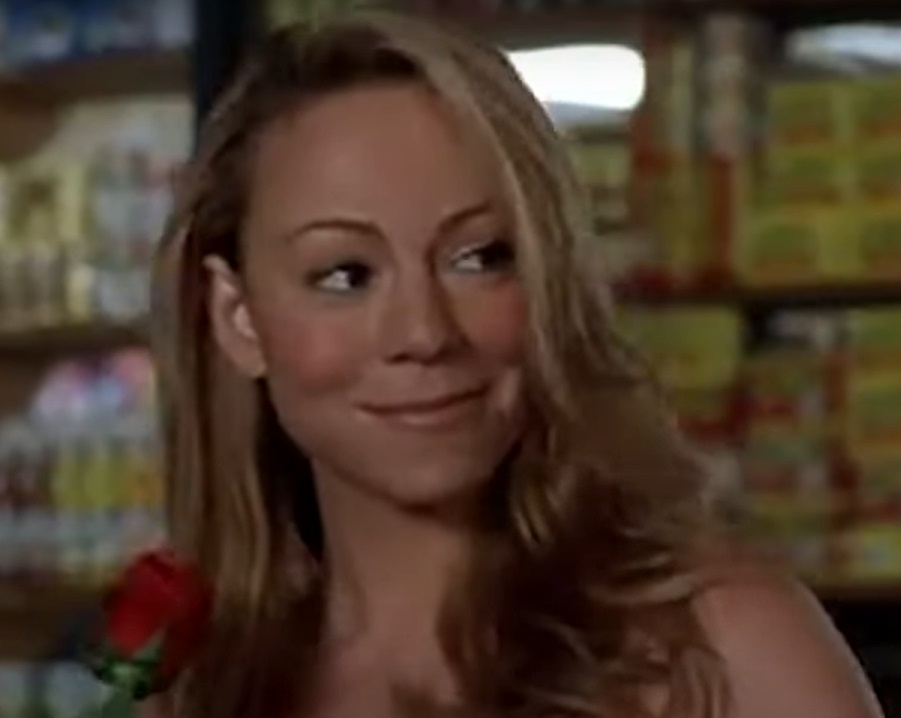 Twentieth Century, Glitter (2001)
Twentieth Century, Glitter (2001)
That’s A Wrap
It’s plain to see from our list that musicals require some essential ingredients for success, including great music, acting, and a compelling story. There are various theories as to why movie musicals have faded in popularity in recent decades. The continuing success of stage musicals shows that the public hasn’t lost interest in the form, and that the potential still exists for a resurgence in great movie musicals in the years ahead.


